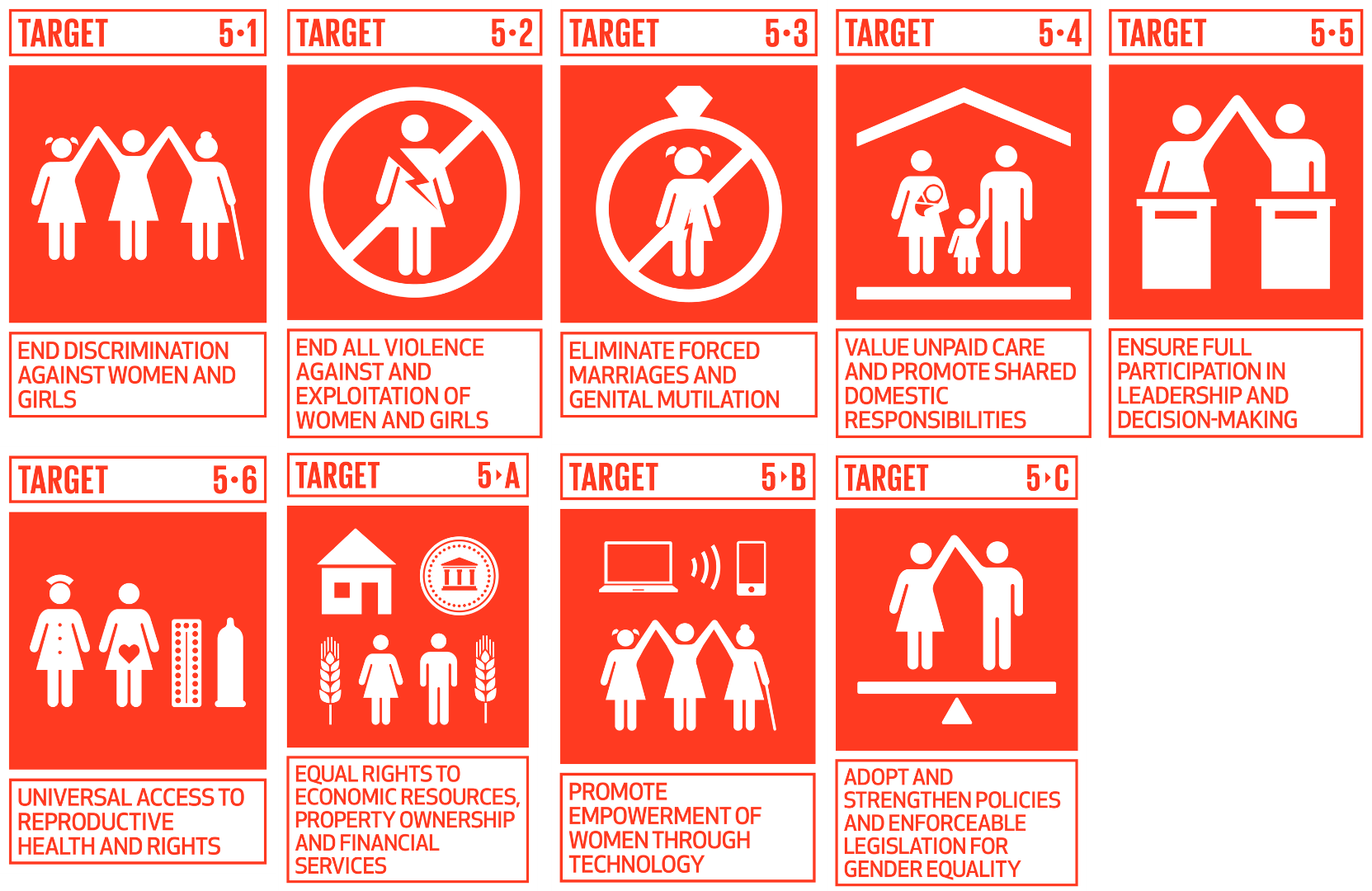SDG 5 - Gender equality and women's empowerment
Actions for SDG 5
Implement gender equality plans and policies ⬇
- Pay equal remuneration, including benefits, for work of equal value and strive to pay a living wage to all women and men
- All employees are entitled to a personal development plan.
- Have non-discriminatory recruitment policies.
- Establish a zero-tolerance policy towards all forms of violence at work, including verbal/ and/ or physical abuse and prevent sexual harassment.
- Work with organizations that comply with equality policies
- Expand business relationships with women-owned enterprises, including small businesses and women entrepreneurs.
Feature working conditions that promote empowerment ⬇
- Assure sufficient participation of women – 30% or greater – in decision-making and governance at all levels and across all business areas.
- Support access to child and dependent care by providing services, resources and information to both women and men
- Offer training courses tailored to the needs of our employees
- Share the issue of "female empowerment" with other groups
- Work in accordance with UN Women's Women's Empowerment Principles
- Promote decent and empowering jobs for women across the value chain
- Create a space where our employees can freely express their opinions, experiences and doubts
Measure women's empowerment and inclusion at all levels ⬇
- Define goals for your strategy to monitor women's empowerment, with qualitative and quantitative information
- Have pay monitoring systems to avoid the pay gap
- Conduct surveys of employees to know their level of awareness of women's social inequality
- Have a register of men vs women who ask for paternity or maternity leave, and monitor the effectiveness of this policy in the company, etc.
- Collect and analyze gender-disaggregated data on incidents of discrimination (related to sex or gender) and note the corrective measures taken
- Ensure that training is equally accessible to men and women, adapting it to special schedules for work-life balance
SDG 5 in Canada
Gender gap still exists (Decision making, Economic prosperity and security) ⬇
- Despite the gender-balanced Cabinet,women remain under-represented in Canada’s national parliament and make up only 27% of its members. Comparatively, women members accounted for 21% of Parliament a decade ago.
- Canada’s economic future depends on all people having equal opportunity to reach their full potential, but disparities persist in women’s labour force participation rate—82% in 2014 compared with 91% for men—and the gender wage gap—Canadian women earned $0.87 for every dollar earned by men in 2017, based on average hourly earnings.
- Immigrant and refugee women and girls face distinct and multiple challenges in Canada, including language acquisition, work transitions, childcare responsibilities, developing new networks and shifting traditional family dynamics

The role of business to help achieve gender equality ⬇
- Empowering women and girls and achieving gender equality requires the concerted efforts of all stakeholders, including business.
- All companies have baseline responsibilities to respect human rights, including the rights of women and girls. Beyond these baseline responsibilities, companies also have the opportunity to support the empowerment of women and girls through core business, social investment, public policy engagement and partnerships.
Latest Updates/Resources related to SDG 5
Sources
Government of Canada, Canada’s Implementation of the 2030 Agenda for Sustainable Development - Voluntary National Review, 2018
SDG Compass, Learn More About the SDGs, 2015








